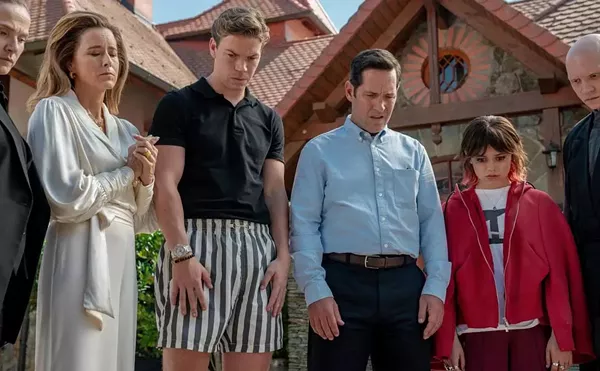The gay-themed melodrama Loggerheads is like a really good community theater production, or something you might see on Canadian television: earnest, mundane and humanistic in a drab, politically correct way. But there’s enough genuine emotion in the film — and so little grandstanding on the part of the actors — that if you’re in the right sort of rainy fall-afternoon mood, it might trigger a tear duct or two.
The movie shuttles back and forth among three interconnected stories taking place in different regions of North Carolina. In one, quiet, taciturn backpacker Mark (Kip Pardue) wanders aimlessly along the coast of the Atlantic, studying the oh-so-metaphoric wayward newborn turtles of the film’s title. Meanwhile, his estranged adoptive mother, the religious-conservative Elizabeth (Tess Harper), lives a life of quiet desperation with her pastor husband (Chris Sarandon). Then there’s the depressive, middle-aged Grace (Bonnie Hunt), who begins to search for the son she was forced to give up for adoption some 20 years before.
It’s communicated through the editing that Mark is the common element that binds the three stories together, but ironically, Pardue is the movie’s weak link. The lanky blond actor has had his share of supporting parts in indie films for years now, but a leading role only highlights his weaknesses: He may look like a Norse god, but he has zero screen presence. He’s the only one who makes the script’s big speeches sound speechy. It doesn’t help that writer-director Tim Kirkman has given Mark a jumble of random, disconnected character traits: Not only is he a sexy, soft-spoken drifter, but he’s also a headstrong, defiant martyr and an amateur marine biologist.
Ultimately, it’s the women who hold the film together. Hunt and Harper both play archetypes, but neither actress condescends toward her character’s predicament. Kirkman may go a little too far in simplifying their grief: Grace’s depression seems to be motivated solely by having lost her birth son, and Elizabeth is too obviously being held back by her oppressive husband. But the women manage to give subtler shadings to the script’s sometimes black-and-white agendas (sealed adoption records, bad; acceptance of your gay son, good). Better yet, Kirkman, Hunt and Harper all understand the primal bonds that exist between mothers and sons, despite their differences in opinion, politics or religion. If Hallmark were to make a line of greeting cards for gay men to give on Mother’s Day, chances are the sentiments in them would be very much like the ones in Loggerheads.
Showing at the Main Art Theatre (118 N. Main St., Royal Oak; 248-263-2111).
Michael Hastings writes about film for Metro Times. Send comments to [email protected].





